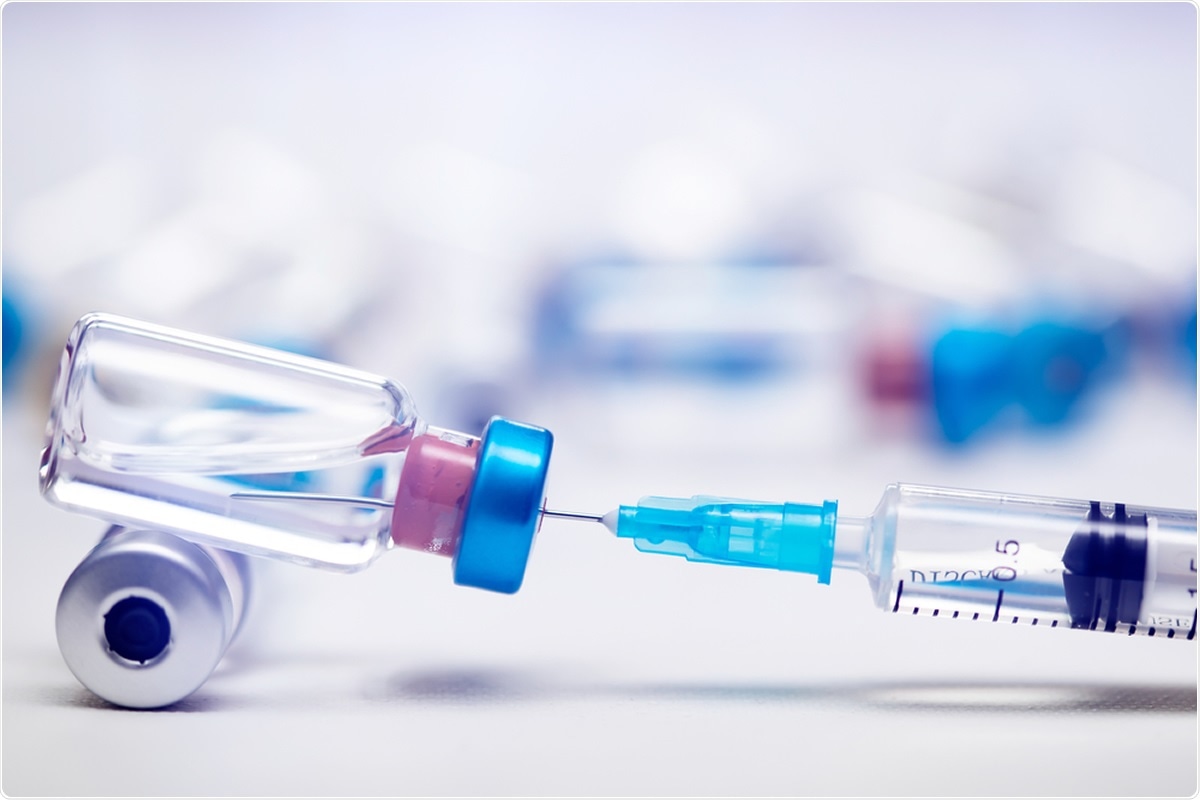
[ad_1]
Spanish researchers have conducted the most in-depth study to date on the effectiveness of vaccinating healthcare workers with a single dose of Pfizer-BioNTech vaccine to protect against 2019 coronavirus disease (COVID-19).
The team claims that one dose of the vaccine elicited a much stronger antibody response against the causative agent – severe acute respiratory syndrome coronavirus 2 (SARS-CoV-2) – among health workers who had previously been infected with the virus than among those who did not have it.
The researchers say that given the controversy over how to ensure adequate immunization of the population during times of vaccine shortage, the study results could help inform decisions about whether to administer a single dose. in some cases.
“So far, this is the largest study looking at the immune response after a dose of Pfizer-BioNTech BNT162b2 vaccine,” writes Maria Velasco of the Alcorcon Foundation University Hospital in Madrid and colleagues. “These data can inform the prioritization of the booster dose in times of vaccine shortage.”
A pre-printed version of the research paper is available on the medRxiv* server, while the article is subject to peer review.

Current challenges in controlling COVID-19
Currently, the primary approach to controlling the COVID-19 pandemic is the deployment of recently approved vaccines and continued adherence to social distancing and hygiene practices.
However, limited vaccine supplies present challenges in terms of ensuring that a sufficient proportion of the population is vaccinated for herd immunity to be achieved.
The standard vaccination protocol for Pfizer-BioNTech vaccine is a 2 dose schedule separated by an interval of 3 to 4 weeks.
However, a single-dose regimen for some people who may not necessarily need a booster shot could help ensure herd immunity in the context of vaccine shortages.
Velasco and colleagues say that data on single-dose immune responses to Pfizer-BioNTech vaccine are currently limited to a few observational studies with a small number of patients.
“In addition, the impact of a previous natural infection on the vaccine response is not well known,” they add.
What did the researchers do?
The team studied the antibody response induced by a single dose of Pfizer-BioNtech BNT162b2 vaccine in 641 health workers (average age 45.8 years) who had previously participated in a SARS-CoV-2 seroprevalence survey. conducted in April and November 2020..
Participants were divided into three groups, based on whether they were seronegative for the virus in both surveys (SARS-CoV-2 naive); transient seropositive (positive in the first survey, but not the second) or persistent seropositive (positive in both surveys).
People with HIV were divided based on the severity of COVID-19 into those with asymptomatic infection, those with mild to moderate illness treated on an outpatient basis, and those with severe illness requiring hospitalization.
Blood samples were taken from the participants after receiving a dose of the vaccine and just before receiving a second dose (21 days after the first dose).
The samples were tested for immunoglobulin (IgG) antibodies against a SARS-CoV-2 surface protein called a peak. The spike protein is the main structure that the virus uses to bind to host cells and a major target for neutralizing antibodies induced by infection or vaccination.
What did the study find?
The median titer of anti-peak IgG induced by a single dose of vaccine was approximately 20-fold higher in previously seropositive participants (22,267.3 arbitrary units [AU]/ mL) than in SARS-CoV-2 naive participants (median 1022.3 AU / mL).
Compared to SARS-CoV-2 naive participants, the median anti-peak IgG titers were approximately 4 times higher in transient seropositive individuals (3,860.0 AU / mL) and approximately 34 times higher in individuals persistent positive (34,551.6 AU / mL).
Among those who were HIV positive, the level of disease severity was also associated with anti-spike IgG titers. The median titer for asymptomatic infection was 15,386.4 AU / mL, compared with 24,388.8 AU / mL for mild to moderate disease and 43,671.7 AU / mL for severe disease.
“Our serologic assessment of healthcare workers showed a dramatic differential response 3 weeks after a single dose of BNT162b2 vaccine, depending on previous SARS-CoV2 exposure and serologic status,” writes Velasco and colleagues.
The combination of previous clinical COVID-19 and the presence of anti-spike IgG antibodies before vaccination were strong predictors of a robust serologic response to a single vaccine dose, the team explains.
What do the authors suggest?
“Our results suggest that postponing the second dose of the vaccine for some people with a predictable strong serologic response may not be a high-risk strategy,” the researchers say.
This would allow other people at risk to be vaccinated until vaccine availability is sufficient for the standard clinically tested protocol (two doses 3 to 4 weeks apart) to be followed, they conclude.
*Important Notice
medRxiv publishes preliminary scientific reports which are not peer reviewed and, therefore, should not be considered conclusive, guide clinical practice / health-related behaviors, or treated as established information.
Source link